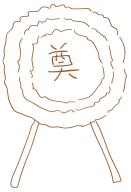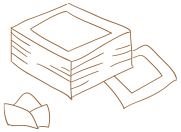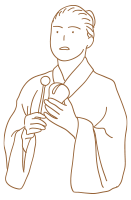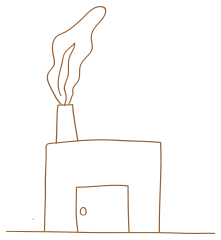


Hospital / Home / Accident
Notification, body transfer, application for relevant documents (A).

Home / Funeral Home
Choose the location for body placement, have the necessary death certificates ready.

Home / Funeral Home / Buddhist Hall
Choose the location for the wake, whether at home, a funeral parlor, or a Buddhist hall. Choose location, cover deity, funeral decorations, prepare (B1), and perform religious rituals (B2).

Discuss funeral arrangements, schedule the encoffin day, plan the overall process. Decide on the funeral date, print obituaries, design the memorial service venue.

At home / funeral home / Buddhist hall
conduct religious ceremonies such as worshiping the deity of the afterlife (C1), honoring the departed spirit, and burning paper money or joss paper (C2).

Private Ceremony
Inviting the soul, reciting scriptures before the ceremony, beginning (playing lamenting music), family worship, post-ceremony scripture recitation.
Public Ceremony
Beginning (playing lamenting music), presenting the deceased's life story & family acknowledgments, group worship by organizations, individual guest worship, viewing of the deceased, closing the casket, sealing, lighting incense, procession around the casket.

Cremation of the body and burial arrangements.

Temporary placement of the ashes.Placement of the ashes in a columbarium.

Memorial services after a hundred days, on anniversaries, and collective urn burials.

Information for family members: guidelines to follow, post-funeral worship rituals, inheritance-related Q&A.

- AApplication of Relevant Documents
-
- 15 original death certificates.
- Copies of family members' ID cards and seals (for burial and cremation permits).
- Deceased person's photo and date of birth.
- Various insurance applications: National Health Insurance, certificate of removal from household registration, surrender of insurance policy, leave, labor insurance.
- Social assistance for veterans, subsidies for low-income households (or low-income certificate).
- B1Preparation Before the Wake
-
- One set of the deceased's home clothes, a pair of indoor slippers or sandals, a small stool and toiletries (toothpaste, toothbrush, rinsing cup, towel).
- Money placed in the hand of the deceased (in red envelopes) and two NT$10 coins.
- B2Rituals During the Wake
-
- Typically managed by a daughter or daughter-in-law.
- Prepare for washing around 7 AM, have breakfast after washing, have dinner around 4 PM (before dark), and wash and rest around 9 PM.
- During the mourning period, bereaved family members should avoid trimming their hair, beard, and nails, and wear plain clothes.
- Keep the wake area clean for the deceased's comfort.
- Adding vinegar to a vase can extend the flowers' freshness. Prepare long-lasting fruits (avoiding specific fruits during rituals: custard apple, pineapple, guava, mango, wax apple, bunched fruits, etc.).
- Incense signifies continuity for generations to come. It's recommended to use coil incense.
- Mourners typically wear mourning objects based on the deceased. Men wear them on the left hand, women on the right.
- When friends come to offer incense, a family member hands the incense to the friend. The family informs the deceased of the visitor and asks for blessings for the friend's well-being. After the ritual, the family places the incense in the incense burner, and the friend departs without saying words such as "see you again".
- C1Worshiping the Deity of the Underworld
-
- Rituals during the seventh day:
Worship the deity of the underworld, honor the deceased, burn spirit money , worship the deity of the underworld again , honor the deceased once more. After each ritual, when family members part ways, they should refrain from greeting or saying goodbye to each other.
- Rituals during the seventh day:
- C2Burning Joss Paper / Treasury Joss Paper
-
- The custom of burning treasury money for the deceased is based on the belief that:
before one's soul reincarnates, it pre-collects an amount of treasury money from the zodiac-based treasury officers. This money serves as traveling expenses for the soul's journey to reincarnation. Upon the individual's passing, this pre-collected sum is returned. Hence, during the funeral, family members often burn treasury money for the deceased following this belief.
- The custom of burning treasury money for the deceased is based on the belief that:


 語言 / Language
語言 / Language

